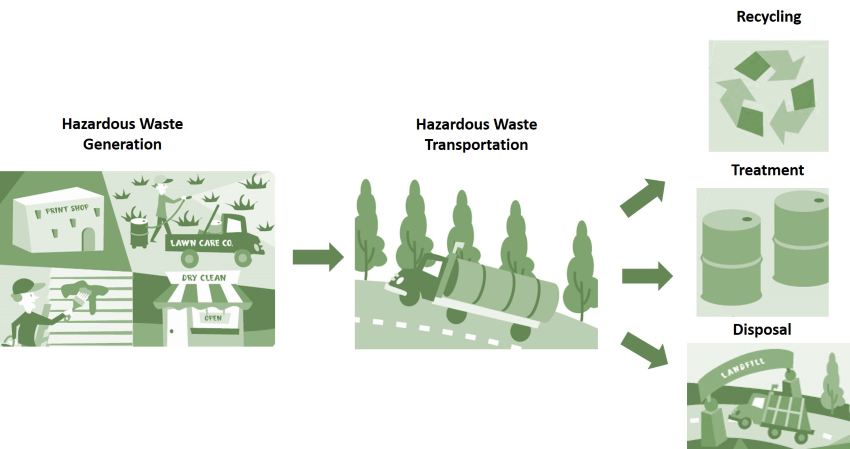Waste Management in South Carolina

Waste management refers to the practice of collecting, transporting, processing or disposing of, managing and monitoring various waste materials. It is important to observe sustainability in this aspect so that every bit of waste can be managed in an efficient manner rather than just dumping it all in landfills.
In the United States, the Environmental Protection Agency (EPA) regulates all waste material under the 1976 Resource Conservation and Recovery Act (RCRA).
Solid waste management practices can differ for residential and industrial producers, for urban and rural areas, and for developed and developing nations. The administration of non-hazardous waste in metropolitan areas is the job of local government authorities. On the other hand, the management of hazardous waste materials is typically the job of the generator, subject to local, national and federal laws.
In solid waste management there is no throwing away. The organic fraction of waste, collection vehicles, and waste disposal methods contribute to GHG emissions. The last two decades have brought a new challenge for waste management: the growing vagaries of global secondary materials markets.
Waste management is the handling of discarded materials. Recycling and composting, which transform waste into useful products, are forms of waste management. The management of waste also includes disposal, such as landfilling.
Solid waste policy in the South Carolina is aimed at developing and implementing proper mechanisms to effectively manage solid waste. For solid waste policy to be effective, inputs should come from stakeholders, including citizens, businesses, community based-organizations, non governmental organizations, government agencies, universities, and other research organizations. These inputs form the basis of our sustainability efforts in this nation.
Bad waste management practices can cause land and air pollution which can result in serious medical conditions in humans and animals. Implementing good waste management practices not only helps to protect the environment but can be beneficial to all business.
There are eight major groups of waste management methods, each of them divided into numerous categories. Those groups include source reduction and reuse, animal feeding, recycling, composting, fermentation, landfills, incineration and land application.
Each year, EPA produces a report called Advancing Sustainable Materials Management: Fact Sheet, formerly called Municipal Solid Waste in the United States: Facts and Figures. This reports show the state of the industry in our nation and focuses on the efforts needed in the future in order to help improve our sustainability and reduce pollution.
Design and management of landfills are an important part of Columbia’s waste management infrastructure. While disposal of materials to landfill is the least preferred management option, they will continue to be required in the future to manage those wastes that cannot currently be practicably removed from the waste stream.
If a resident or business has a large quantity of junk that needs to be directed to the landfill, it is recommended that they hire a roll-off dumpster service so that they can haul away such mass of debris in one go. Such dumpster rental in Columbia is quote popular as the people are very conscious of the dangers for th environment if we do not keep on cleaning up and managing our wastes properly.